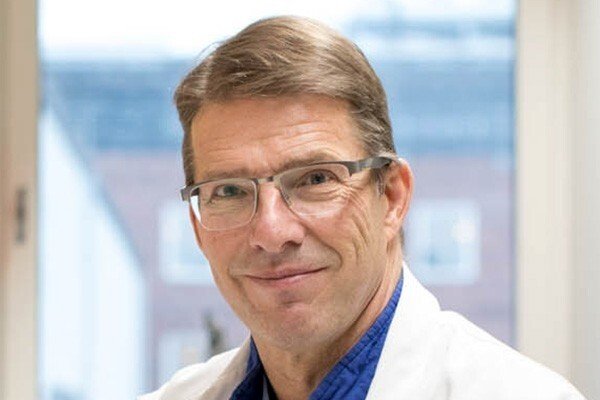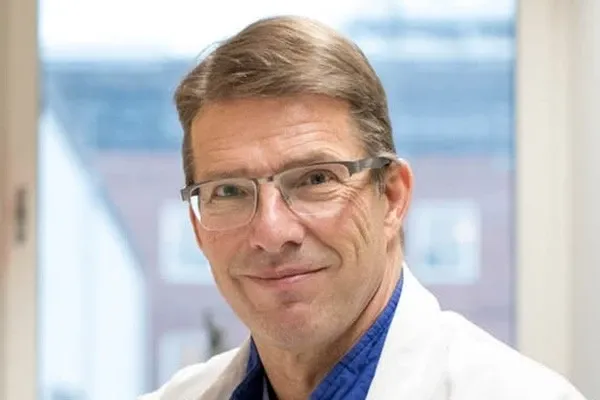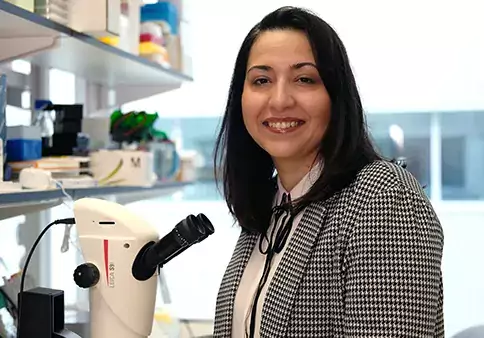 Photo: Karolinska Institutet
Photo: Karolinska InstitutetResearch group leader
Professor Ulf Hedin is research group leader of the group Vascular Surgery at the Department of Molecular Medicine and Surgery

Vascular disease is the leading cause of death and disability in the western world. In order to prevent disease development and develop preventive strategies, a complete understanding of basic cellular and molecular mechanisms is necessary. Our research is focused on basic mechanisms both in the development of vascular disease as well as in the response of the vessel wall to vascular interventions for limb ischemia, carotid disease and stroke and aneurysms.
 Photo: Karolinska Institutet
Photo: Karolinska InstitutetProfessor Ulf Hedin is research group leader of the group Vascular Surgery at the Department of Molecular Medicine and Surgery
 Photo: n/a
Photo: n/aOur research is focused on basic mechanisms both in the development of vascular disease as well as in the response of the vessel wall to vascular interventions for limb ischemia, carotid disease and stroke and aneurysms. The advanced molecular research conducted in the group and the close proximity to clinical vascular surgery, create a unique platform for the resolution of issues of immediate concern for clinical care as well as breeding of future clinical academic leadership.
The group is headed by Professor Ulf Hedin and belongs to the Department of molecular medicine and surgery, and is also the main research team at the clinical department of vascular surgery at the Karolinska University Hospital. We have established collaborations with the cardiovascular research groups at CMM and the departments of Clinical Physiology, Neurology, Cardiology, Nuclear Medicine, Clinical Chemistry, and Clinical Pharmacology at the hospital. The group also collaborate with CMB, MBB and SciLifeLab at Karolinska Institutet, as well as with researchers at the Royal School of Technology and Uppsala University, and research groups in Sweden and in Norway, Germany, Netherlands, England, USA and Canada.
Vascular Surgery, Department of Molecular Medicine and Surgery
Karolinska Institutet
BioClinicum J8:20
Karolinska University Hospital, Solna
171 76 Stockholm
Vascular disease is the leading cause of death and disability in the western world. In order to prevent disease development and develop preventive strategies, a complete understanding of basic cellular and molecular mechanisms is necessary. Our group utilizes a translational platform with advanced cell- and molecular biology, animal models in combination with patient centred research to resolve target processes in peripheral vascular disease such as mechanisms related to thromboembolic carotid disease and stroke, pathogenesis of abdominal aortic aneurysms, vascular repair processes and inflammation in association with interventional procedures and pulmonary hypertension. The close proximity between clinical vascular surgery and advanced molecular research creates a unique platform for the resolution of issues of immediate concern for clinical care as well as breeding of future clinical academic leadership.
 Photo: Karolinska Institutet
Photo: Karolinska InstitutetThe project aims to identify biological processes and central molecules in the case of instability in atherosclerosis plaques, which can be used to, among other things, develop biomarkers for unstable atherosclerosis in patients at risk. The project can provide new knowledge about the causes of unstable atherosclerosis in patients with narrowings of the carotid artery, and help prevent stroke.
 Photo: Tintin Vidhammer
Photo: Tintin VidhammerThe Translational Vascular Medicine team is a translational Team composed of basic researchers with expertise in molecular biology and pharmacology, and clinically active vascular surgeons. The team applies integrative analyses combining bioinformatic and clinical data studies with murine models of vascular injury and disease, while in vitro systems based on primary cells and tissue explants are utilized for functional and mechanistic investigations.

We can dehydrate any type of tissue in regular or mega cassettes. The dehydration program can be adjusted to match different tissues type and size.
Equipment Milestone Logos (2019)
After the dehydration we have two embedding stations for self-service.
Equipment Kunz WD-4 (2018)
We can scan Brightfield slide in the Olympus Slide-scanner.
Software is free
Olympus VS200 (2021)
Dehydration: 18 SEK per paraffin block
Embedding: Free self-service. 450 SEK/hour if the Histo-core staff takes care of it.
If you do not have your own cassettes and pad’s you can buy them from us.
Price Slide-scanning (2025): Brightfield 40kr/slide, Fluorescence 60kr/slide
Users of our dehydration service have priority.
Equipment Microm HM360
Equipment BIOCARE Decloaking Chamber Nx Gen
To schedule training contact us directly!
Training is required for all first-time users at the cost of 450 SEK/hour and is limited to instructions on how to operate the equipment and software. Training does not include supervision in assay setup, assay preparation or staining. The fee includes the costs related to the first run.
Contact Mariette Lengquist Lab Manager and BMA in Histopathology
Stockholm Aneurysm Research Group, STAR is a collaborative network for scientists with a specific interest in Aneurysmal disease. Please visit the STAR website for more information: